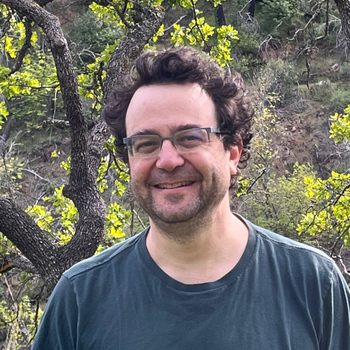
Gregory Kaplan
Introduction
Together, you and I can make a real difference in your life. It can happen with our commitment, in a measured process, to encourage a novel twist in or a new taste of how you live to come about. It happens when we begin to notice parts of yourself that remain largely or wholly outside of your awareness, and other parts of you that work to keep it that way. These tender and defensive parts show up in conflicting or stuck or erratic or harmful patterns of behavior, emotion, and thought. These sit within complex dynamics that remain obscure until they surprisingly become, through our careful attention, increasingly apparent. Or, from another perspective, we may begin to notice that some of your relationships are inflexible or unstable or unsatisfying or abusive: a romantic partnership could take on less of an idealized quality than you might have previously imagined of it; your family system can be fragile, breaking down with friction between — and occasionally cutoffs by — children, parents, or siblings; earning an income can be strained by working conditions, job insecurity, or inequity; the passion of your artistic expression may feel frozen. Whatever issues come to mind, you may discover through our sustained dialogue that unexplored avenues to determine a unique, creatively adaptive life of your own could unexpectedly open up. As our dialogue takes the risk of entering into an unusual form of conversation, wherein distant or dissociated parts of you would be able to come forward into the field of our related experience, we stand on a "narrow rocky ridge between the gulfs where there is no sureness of expressible knowledge but the certainty of meeting what remains undisclosed," as the philosopher Martin Buber wrote. It is possible to integrate your unnoticed yet prized desires and beliefs with your currently emerging self. Psychoanalytically-oriented psychotherapy can foster a truer version of yourself, ironically, never truly alive before you begin to go on being "just me" in more integrated, generative ways. I will approach our dialogue with curiosity, empathy, theoretical knowledge, and respectful listening for your own distinctive, personal voice. Before becoming a psychotherapist, while residing in several US cities and three other countries, I had careers in the fields of academia and publishing. I earned a PhD in comparative religious studies from Stanford University due to my passion for understanding human identity ("who am I?"), the variety of human experience ("what are these others saying and doing?"), and the whole of reality which envelopes human being ("how does it all hang together, and fall apart?"). Writing and teaching about religions from a philosophical view has helped me to understand how people interpret the meaning of their lives with the aid of rituals, symbols, dreams, images, sounds, and language — forms of expression that bring forth parts of ourselves and facets of our relationships which would otherwise elude, or get distorted by, conscious awareness. I then honed my facilitating skills as a book editor and publisher. I received an MA in mental health counseling from a psychodynamically focused program at Northwestern University (The Family Institute). My psychoanalytically-oriented approach to psychotherapy is supported by regular consultation and continuing education. I have worked well with students, professors, creators (writers, musicians), professionals, entrepreneurs, LGBTQIA+ community members, parents, and others. I am a certified clinical trauma care provider, including trained use of EMDR; I volunteer time with clients through the Returning Veterans Project; and I have taught courses in the clinical mental health program at Lewis & Clark University. Patients with Aetna and Regence/BlueShield insurance book through this site. https://headway.co/providers/gregory-kaplan?utm_source=pem&utm_medium=direct_link&utm_campaign=99886 <!-- Professional verification provided by Psychology Today --> <a href="https://www.psychologytoday.com/profile/758538" class="sx-verified-seal"></a> <script type="text/javascript" src="https://member.psychologytoday.com/verified-seal.js" data-badge="13" data-id="758538" data-code="aHR0cHM6Ly93d3cucHN5Y2hvbG9neXRvZGF5LmNvbS9hcGkvdmVyaWZpZWQtc2VhbC9zZWFscy8xMy9wcm9maWxlLzc1ODUzOD9jYWxsYmFjaz1zeGNhbGxiYWNr"></script> <!-- End Verification -->
Connect
View websiteHighlights
- Accepting new clients
- Available on nights
- Offers free consultation
- In-person & telehealth appointments
- Accepts online payments
Licenses
-
LPCA #R7216 (OR)
-
LMHC #LH61521825 (WA)
Specialties
Additional focus areas
Treatment Approaches
Population focus
Appointment types
- Individuals
- Families
- Groups
Communities
-
Military/Veterans
-
Feminism
-
LGBTQIA+
-
Open Relationships/Polyamory
Age groups
-
Young Adults (18-24)
-
Adults (24+)
-
Elders (65+)
Languages
-
English
Free intro call available
Pay with insurance
Looking for practitioners who accept insurance?
Pay out-of-pocket
-
50 minutes $150